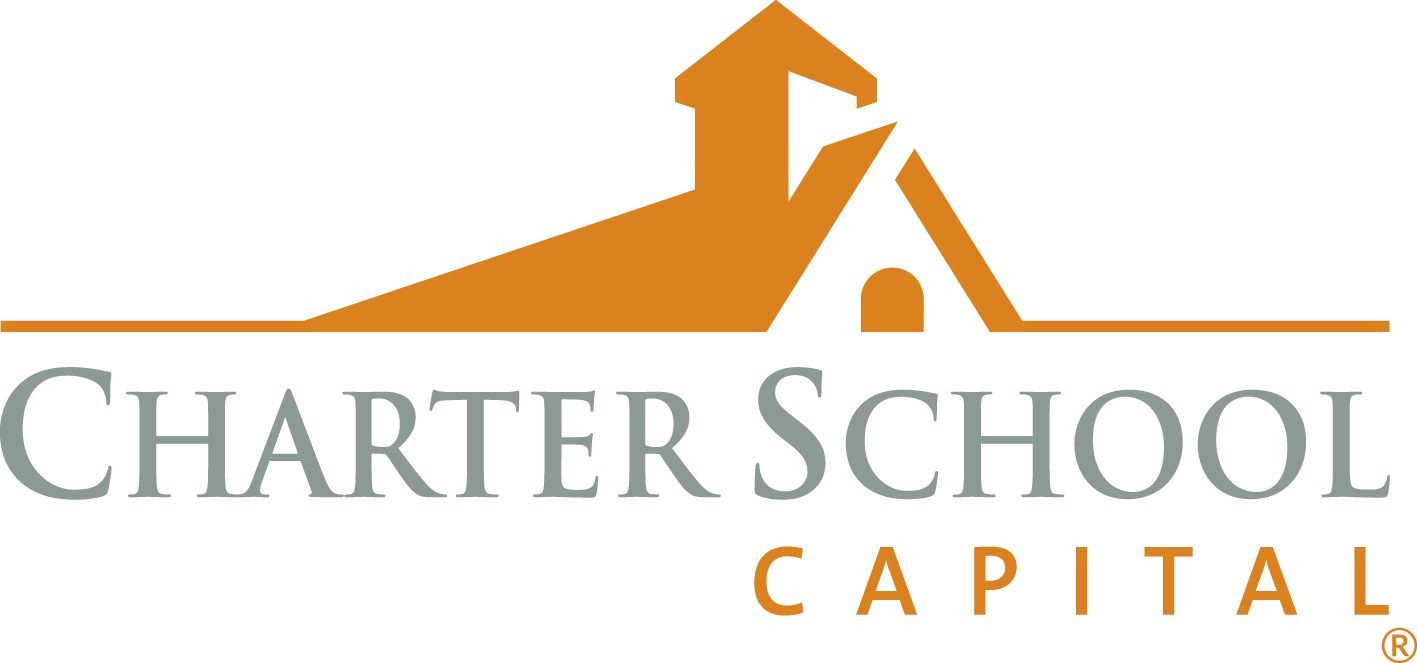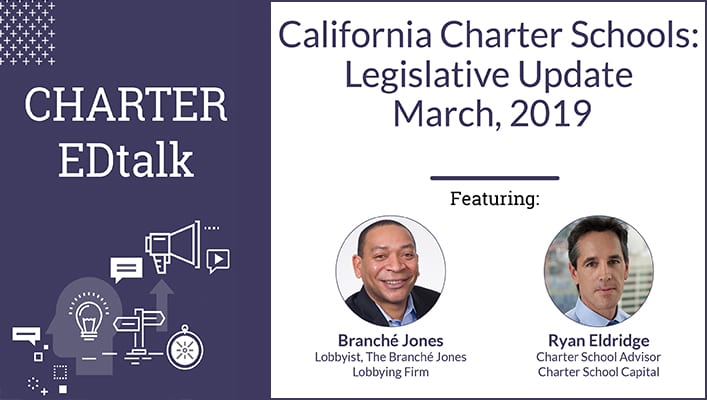California Legislative Update and Senate Bill 126
In this CHARTER EDtalk, we are honored to be joined by Branché Jones from Branché Jones Lobbying Firm, an expert in California charter school legislation and supporter of the charter school movement. Branché shares his insights into the most recent California legislative updates and how the new SB126 is going to affect charter schools across the state of California. To learn more, please watch the video or read the transcript below for the full story.
TRANSCRIPT
Ryan Eldridge: Hello, and welcome to this episode of CHARTER EDtalks. I’m Ryan Eldridge, Charter School Advisor for Charter School Capital, and I’m honored to be joined by Branché Jones from Branché Jones Lobbying Firm. And we’re here to discuss the California Legislature and Senate Bill 126. So Branché, I know that you’ve got your pulse on things, and we just wanted to find out a little bit more about how 126 is going to impact the charter schools in California.
About Senate Bill 126
Branché Jones: Sure. SB-126 is a culmination of about 15 years of efforts to apply conflict of interest provisions to charter schools in the state. It has the Brown Act in it, the Political Forum Act, the Public Records Act, and you’ll have to comply with government code 1090, which is the governing body of law for elected officials and board members. What it’s going to do is you’re actually going to have to change your provisions, how you operate your Board. Your governing structure may have to change, who you can hire, what terms they’ll be working for you under, things of that nature.
Additionally, for non-classroom-based schools, they have some teleconferencing provisions. So when you’re having a board meeting, there’ll have to be some type of device at every location where people can testify and hear what’s going on in the board meeting.
As I said in the beginning, it was about 15 years in the making. Charter schools have been able to fight it off and different descriptions of it, different bills, Assembly bills, Senate bills. The previous governor, Mr. Brown, was very supportive of charter schools, everybody knows, and he would not sign this piece of legislation.
This governor, Mr. Newsom, said in his campaign that he was going to enact some charter school transparency laws around conflict of interest and things of that nature. So, this bill actually passed in warp speed. It took one week to get through the State Assembly. State Senate first, one week to get through the State Assembly, then it was on the governor’s desk, and he signed it. It’ll go into effect on January 1st, 2020.
In my personal opinion, this was coming in some form or another. We had lived free of those laws since the inception of the Charter School Act, so this was kind of like government creep. It was coming.
Eldridge: Inevitable. Right?
Jones: One way or the other—it was. Correct. It was inevitable. Many schools already live under these provisions and adhere to these provisions. The one thing to add is the bill also applies those same provisions to charter school management corporations (CMOs), so anybody managing or running a charter school has to comply with all those laws as well. That’ll be something that I think people really have to make sure they have a tight grip on because you don’t want to be out of compliance with the statute. That would be reasons for revocation, and that could be the case in some places.
We know there are some interesting governance models out there, but that’s the one twist they put on the bill. So it applies to the entire charter school structure. There was little to no opposition because it was inevitable. The governor wanted this on his desk. He wanted it to be the first thing he signed, and he made sure everybody knew that. We all had our meeting in the Horseshoe with the staff. That’s the governor’s office. They explained the realities of the situation to us all. So this was going to happen, and it basically … It almost went through unanimously, with a couple Republicans in the State Senate and State Assembly voting against it.
What does this mean for the rest of 2019?
Jones: What this means moving forward for 2019, this is the first bill of many that will apply to charter schools. There’s 1505 that would take away your rights to appeal and do a number of wacky things. I know there are some amendments out there to it, but everyone will be in opposition to that. 1506 has not been amended yet at this date, but it will have a cap of some kind in it for charter schools. 1507 closes a loophole that says you can put your site … if you can’t find a location for your school in the district you’re authorized in, you can put it in the district next door. And 1508 will deal with districts … It hasn’t fully been amended, kind of like 1506. They’re working on the language, but it will deal with the financial impact charters have on districts and probably allow a district to deny a charter for fiscal reasons.
Now, the last point I’ll add is the governor has not … the administration hasn’t taken a position. We know people will be fighting these measures as they go through the State Assembly. I don’t know where the State Senate will be. I don’t know that they all reached the governor’s desk, but he did not want to put a cap or a moratorium in his piece of legislation. So that might hint as to where he is on it, but we’re not clear at this point. The only other thing to add is there’s a charter school commission that’s been created to look at the fiscal impact charters have on districts and should have a report out the end of June.
Eldridge: Okay
Jones: That’s the legislative makeup.
Eldridge: So some more information may be coming in the June timeframe, so you can maybe do another one of these with us?
Jones: Yes, we’ll do another one.
Eldridge: And get some updates?
Jones: Yes. And then after June, we’ll know. The governor’s May revision will be out, so we’ll know where the budget numbers are as well.
Eldridge: We appreciate it. This wraps up this version of Charter Ed Talks. We appreciate your time, and thanks for joining us.
 Since the company’s inception in 2007, Charter School Capital has been committed to the success of charter schools. We provide growth capital and facilities financing to charter schools nationwide. Our depth of experience working with charter school leaders and our knowledge of how to address charter school financial and operational needs have allowed us to provide over $1.8 billion in support of 600 charter schools that have educated over 1,027,000 students across the country. For more information on how we can support your charter school, contact us. We’d love to work with you!
Since the company’s inception in 2007, Charter School Capital has been committed to the success of charter schools. We provide growth capital and facilities financing to charter schools nationwide. Our depth of experience working with charter school leaders and our knowledge of how to address charter school financial and operational needs have allowed us to provide over $1.8 billion in support of 600 charter schools that have educated over 1,027,000 students across the country. For more information on how we can support your charter school, contact us. We’d love to work with you!
